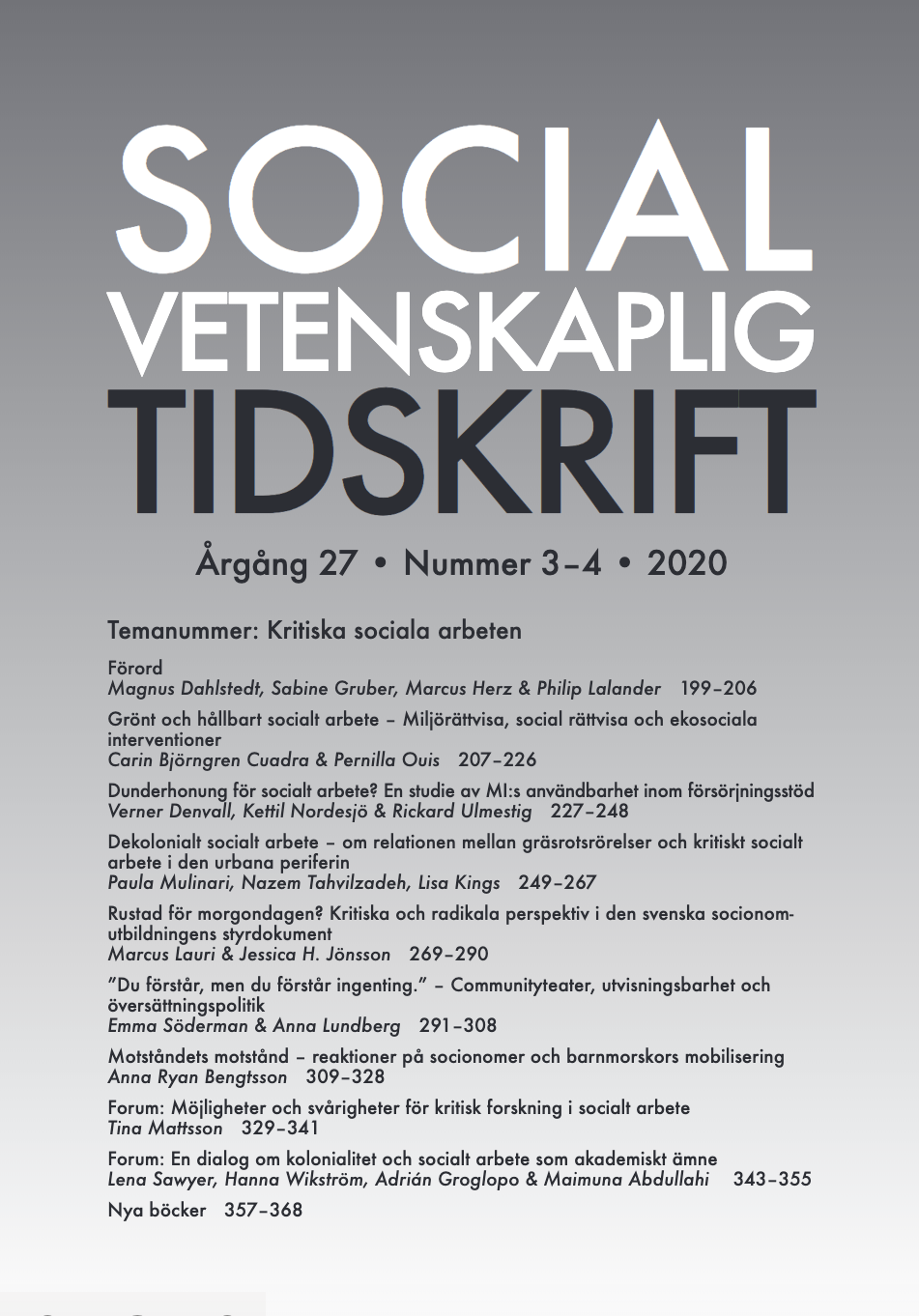Grönt och hållbart socialt arbete - Miljörättvisa, social rättvisa och ekosociala interventioner
DOI:
https://doi.org/10.3384/SVT.2020.27.3-4.3662Abstract
This article introduces an approach within social work called green social. It is argued that this approach has a critical potential in its ability to respond to urgent issues concerning people’s current and future living conditions. It is further argued that in addition to its traditional involvement in problematic distribution of resources, social work can act upon linkages between social issues and issues concerning environmental and climate crisis when integrating areas of knowledge from other disciplines. Such linkages imply a revision of the construct ”person-in-environment” that traditionally denote a delimited notion of environment as the ”social environment”, thereby disregarding the biophysical environment that human beings are a part of. The article discusses concepts such as ”sustainable welfare”, ”de-growth” and ”transition” and presents examples of so-called ecosocial interventions while also making an argument for strengthening community work in Sweden.
Downloads
Publicerad
Referera så här
Nummer
Sektion
Licens
Allt material i Socialvetenskaplig tidskrift publiceras sedan 2022 (Vol 28 Nr 2) med omedelbar öppen tillgång (open access), under Creative Commons-licensen CC BY 4.0. Upphovsrätten till innehållet tillhör respektive författare.
Allt innehåll i tidskriften är fritt tillgängligt utan kostnad och får fritt läsas, laddas ned, kopieras, delas, skrivas ut och länkas. När innehållet används måste författare, källa och licens anges. Författaren kan fritt göra sin publicerade text tillgänglig på institutionella och internetbaserade arkiv, exempelvis sitt lärosätes digitala arkiv eller andra tjänster för detta.
Inga publiceringsavgifter tas ut vid publicering i Socialvetenskaplig tidskrift.


